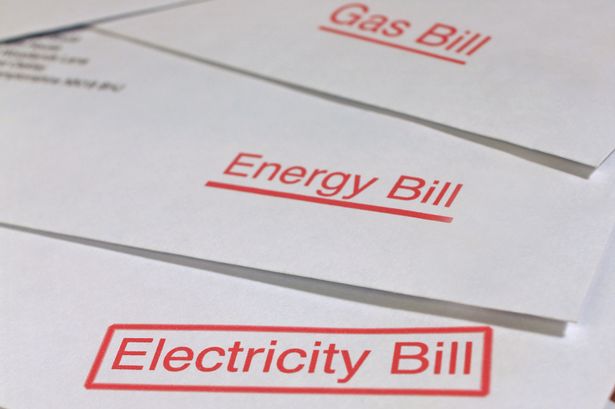Cost of living: is the Don’t Pay campaign viable or is there a better way?
Take a look at this discussion of the Don’t Pay campaign, that calls for a million people to cancel their Direct Debits to energy firms:
Is it viable? Well…
There are pitfalls.
As I understand it, the suggestion is that you cancel your Direct Debits and make a complaint about the amount to your energy supplier, who cannot then switch off your supply for non-payment while the complaint is ongoing. It is important that you make your complaint direct to the supplier and not to any debt collection agency they may send to you.
According to the narrative, you may be offered a small reduction – but you should not accept it. Instead, you should wait for a letter of “deadlock” – meaning your supplier is saying they can’t come to terms with you.
Then you complain to the Ombudsman. What is not said here – but is apparent from the Ombudsman’s documentation – is that the complaint must be ongoing for at least eight weeks – or your supplier must have signposted you to the Ombudsman – before you can do this. And you must give the company an opportunity to resolve the issue.
Every complaint the Ombudsman receives is said to trigger a charge of £375 (some say £500) to the energy supplier. Strangely, the Ombudsman’s website does not mention the amount it charges.
The idea is that if enough people get to this point in the process, the energy firms will be paying £375 million on complaints alone and may fall into financial difficulties themselves.
However: these are firms that have built up huge profits over the last two years, and it is entirely possible that they could simply wait out any protests; I understand the proportion of customers needed to complain would have to be more than 15 per cent before any real threat to the firms’ viability is registered. That might be too much to ask.
Alternatively, instead of paying Direct Debits, you could instead arrange with your energy supplier simply to pay for what you use each month – meaning your energy firm doesn’t take more than you can pay because you can regulate it. But the tariff may be higher so you could still be out-of-pocket by doing this.
I imagine it would still be possible to make a complaint about the amount being charged via Direct Debit being too high, so you could still go through the Ombudsman process.
Meanwhile, the mainstream media are scaremongering with warnings that energy suppliers may simply get a court order allowing them into people’s homes in order to fit pre-payment meters or cut off the energy supply (although this last option is extremely rare).
Suppliers cannot move anybody to pre-payment if it is not practical – for example, if an illness or disability means a customer would be at risk if their gas or electricity was cut off. This Writer has seen information from a person on Personal Independence Payment whose supplier extended their present tariff until next March.
Suppliers also need to follow clear guidance and make sure they have given adequate notice, time to pay any debts and offered alternatives to being moved on to a pre-payment meter.
So what’s the best thing to do?
From what This Writer has seen so far, the best advice is to get in touch with your energy supplier and simply tell them that you are concerned that you will not be able to pay a Direct Debit if it increases hugely in October or January.
Explain your circumstances because, like the PIP claimant mentioned above, you may be able to negotiate an extension of your current tariff.
Discuss the benefits and pitfalls of every alternative that is available to you. Warn them that you are concerned you may have to take action against them if you cannot come to affordable terms – as a last resort.
And make clear exactly how much (or, realistically, how little) your financial situation is likely to change between now and next January; any payment plan needs to be practical.
Then see what they say before committing to any action that could harm your credit rating.
Have YOU donated to my crowdfunding appeal, raising funds to fight false libel claims by TV celebrities who should know better? These court cases cost a lot of money so every penny will help ensure that wealth doesn’t beat justice.
Vox Political needs your help!
If you want to support this site
(but don’t want to give your money to advertisers)
you can make a one-off donation here:
Here are four ways to be sure you’re among the first to know what’s going on.
1) Register with us by clicking on ‘Subscribe’ (in the left margin). You can then receive notifications of every new article that is posted here.
2) Follow VP on Twitter @VoxPolitical
3) Like the Facebook page at https://www.facebook.com/VoxPolitical/
Join the Vox Political Facebook page.
4) You could even make Vox Political your homepage at http://voxpoliticalonline.com
And do share with your family and friends – so they don’t miss out!
If you have appreciated this article, don’t forget to share it using the buttons at the bottom of this page. Politics is about everybody – so let’s try to get everybody involved!
Buy Vox Political books so we can continue
fighting for the facts.
The Livingstone Presumption is now available
in either print or eBook format here:
Health Warning: Government! is now available
in either print or eBook format here:
The first collection, Strong Words and Hard Times,
is still available in either print or eBook format here:
- ☕ Support Vox Political on Ko-fi or donate via PayPal
- 📘 Buy our books — political analysis and satire you won’t find elsewhere
- 📨 Join the mailing list for real headlines, direct to your inbox
- 🔗 Follow us on Facebook and Twitter/X
3 Comments
Leave A Comment
you might also like
- ☕ Support Vox Political on Ko-fi or donate via PayPal
- 📘 Buy our books — political analysis and satire you won’t find elsewhere
- 📨 Join the mailing list for real headlines, direct to your inbox
- 🔗 Follow us on Facebook and Twitter/X
- ☕ Support Vox Political on Ko-fi or donate via PayPal
- 📘 Buy our books — political analysis and satire you won’t find elsewhere
- 📨 Join the mailing list for real headlines, direct to your inbox
- 🔗 Follow us on Facebook and Twitter/X
- ☕ Support Vox Political on Ko-fi or donate via PayPal
- 📘 Buy our books — political analysis and satire you won’t find elsewhere
- 📨 Join the mailing list for real headlines, direct to your inbox
- 🔗 Follow us on Facebook and Twitter/X











I’ve had experience with the so called Ombudsman in other areas in the past- it seems to be standard practice for the companies involved to simply refuse to give a deadlock letter- which mean the Ombudsman can’t get involved, even after a 3 year wait…..
It seems you can contact the Ombudsman after a dispute has been going for eight weeks.
I bet that won’t be a single roadworthy Electricity or Gas van left once the people realise just how bad things will be!